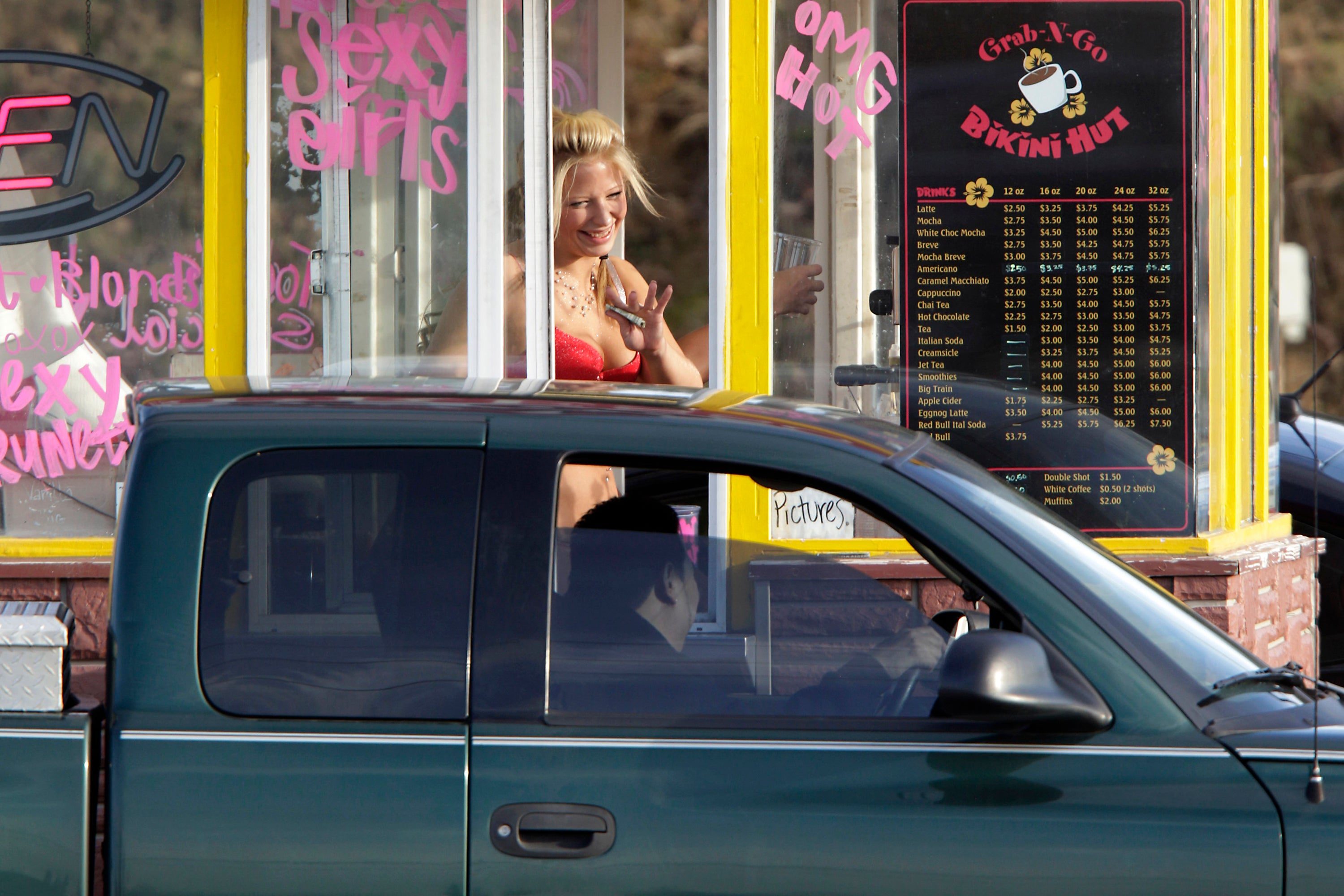City to pay $500K to settle bikini barista dress code suit
A legal battle over a dress code for bikini baristas at coffee stands is ending after a city north of Seattle agreed to pay $500,000 to the owner and employees who sued over it six years ago

Your support helps us to tell the story
From reproductive rights to climate change to Big Tech, The Independent is on the ground when the story is developing. Whether it's investigating the financials of Elon Musk's pro-Trump PAC or producing our latest documentary, 'The A Word', which shines a light on the American women fighting for reproductive rights, we know how important it is to parse out the facts from the messaging.
At such a critical moment in US history, we need reporters on the ground. Your donation allows us to keep sending journalists to speak to both sides of the story.
The Independent is trusted by Americans across the entire political spectrum. And unlike many other quality news outlets, we choose not to lock Americans out of our reporting and analysis with paywalls. We believe quality journalism should be available to everyone, paid for by those who can afford it.
Your support makes all the difference.A legal battle over a dress code for bikini baristas at coffee stands is ending after a city north of Seattle agreed to pay $500,000 to the owner and employees who sued over it six years ago.
The Everett City Council voted unanimously this week to authorize Mayor Cassie Franklin to sign the settlement agreement with Jovanna Edge and employees, The Daily Herald reported.
Plaintiffs had been seeking more than $3 million in damages and attorney fees.
Under the agreement, the city will keep most of its rules for probationary licensing of coffee stands and other quick-service business but will no longer dictate that baristas wear at least tank tops and shorts.
Instead the city will align dress code rules with an existing lewd conduct standard that makes it a crime to publicly expose too much of one’s private parts. Another provision mandates that business owners post materials for employees with information on how to seek help if they are being trafficked or otherwise exploited.
“I am glad we’re for the baristas and against the people who are trying to get them to do things they don’t want to do,” City Council member Liz Vogeli said after the vote.
The settlement may end the saga that started in 2009 when the city said it received complaints prompting investigations that revealed some stands were selling sex shows and sex acts and allowing customers to physically touch the baristas. Four people were arrested and prosecuted.
In 2013 two espresso stand owners were arrested on accusations of promoting prostitution and exploitation of a minor, as well as a Snohomish County sheriff’s sergeant for tipping off baristas about undercover officers in exchange for sexual favors. The sergeant resigned, and the owners were convicted.
The city in 2017 created the dress code ordinance requiring employees, owners and operators of “quick service facilities” from coffee stands to fast-food restaurants to wear clothing that covers the upper and lower body or face fines.
Edge, the owner of Everett bikini barista stand Hillbilly Hotties, and employees Natalie Bjerke, Matteson Hernandez, Leah Humphrey, Amelia Powell and Liberty Ziska filed a legal complaint arguing that the ordinance violated their First Amendment rights.
“Some countries make you wear lots of clothing because of their religious beliefs,” Hernandez wrote. “But America is different because you can wear what you want to wear. I wear what I’m comfortable with and others can wear what they are comfortable with."
The case has seen various rulings in the courts, but in October a U.S. District Court judge found the dress code ordinance unconstitutional.
Ramerman told the council the city could appeal but a defeat would lead to a much higher tab than the $500,000. The city has spent nearly $400,000 defending the ordinance.
The settlement “still gives us our best tool to require stand owners to make sure their employees are not engaging in illegal conduct,” the city attorney said.